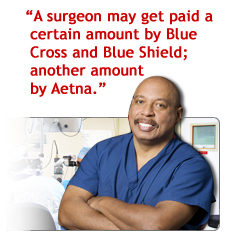 Last month, Synergy ran Part 1 of an interview with Ruthann Russo, author of the book Seven Steps To Your Best Possible Healthcare. (Read Part 1, too.) If you ever have a significant health need, this book can help you cut through the maze of doctors, treatment options, hospitals, and health plan benefits, and get you the healthcare you seek. The book is an insider’s view on how to be a strong advocate for your own care. This issue, we continue the discussion and focus on working with your health plan.
 SYNERGY: Let’s say you’ve just selected your health benefit plan through your employer. With many plans, you have to pick a primary care provider. Is there any rule of thumb as to how to select a doctor?
Ruthann Russo: Age and gender are really important to most people. And find out the doctor’s relationships with hospitals in your area. Certain doctors only admit to one hospital. The health plan provides that information.
SYNERGY: It’s common now for people to Google a doctor’s name. [Editor’s note – see Googling your doctor.] Is there enough good information on a typical doctor’s website or practice website to guide you?
RR: It depends on the doctor. For doctors who are part of larger practices or employed by an academic medical center, you can get all kinds of information. For doctors who are in smaller practices or solo practices, it’s harder to get that information because a lot of them, believe it or not, still don’t have websites. It’s not something that they feel is important or whatever.
If you want a doctor who has gone through a certain type of medical school or who admits to a certain hospital or healthcare system, you’ll have to put in the time and effort to ask the right questions. Many of us spend more time planning for a party than we do planning for our health. Stop and think about the last big birthday party that you threw --how much time and energy did you put into that versus finding a new primary care doctor? When I ask an audience this, everybody will start to look very sheepish because everybody is like yeah, I probably put, you know, 20 hours into a party and maybe 15 minutes when I had to find a new doctor.
SYNERGY: In your book, you talk about the concept of a health advocate, which is pretty intriguing. Do all health plans have them?
RR: Health advocates are generally a group of individuals who are employed directly by the health plan or who are in a contractual relationship with the health plan. They are there to help you navigate your way through the health plan. There are usually some criteria for who can use the services of a health advocate. Generally, it’s individuals who have a chronic condition. Every plan will be different. There is no law. It’s something that most plans do because it helps the administrative aspect of the program and saves time and money for them because it’s a way to manage the insured.
 Most health plans don’t tell you about this. In fact, of the people who I interviewed for the book who had used a health advocate, most of them were told about the health advocate by the doctor or the nurse who they were working with.
SYNERGY: In the examples you gave in the book, the health advocate helped the person get paid. I wouldn’t think that a health plan would be highly motivated to help you get reimbursed for health services.
RR: There are a certain number of claims that are for many, many reasons, almost automatically rejected. They come in missing this or that on the claim. Well, those rejections cause a flurry of issues that the health plan has to deal with. So the health advocate helps them manage that process. When we’re talking about the big ticket items, which is what most of the health advocates are actually representing, chronic conditions or significant surgeries, the advocate is there to help you walk through the process. They know that some proportion of that will be paid anyway, eventually.
They are also there to work with the healthcare providers. Not everybody knows this, but there is a level of negotiability in prices that are charged by every healthcare provider. In most situations the plan has already negotiated with the healthcare provider what they will be paid, as long as they are a participating provider. That’s done on a plan by plan basis. A surgeon may get paid a certain amount by Blue Cross and Blue Shield; another amount by Aetna. However, when it comes to these big ticket items, there is a certain amount of negotiability, especially when the patient has no money and that healthcare provider is probably not going to get paid by the patient.
So the healthcare advocate comes in saying, "I represent the patient; are you open to negotiating the cost of treatment."
SYNERGY: That makes sense. How does a person go about finding the health advocate?
RR: It might be in the health plan’s materials, but you might need to make a telephone call. You should keep a contact at your health plan; if at all possible, talk to the same person when you call your plan. You know – "Paul, who is the person I talk to if I have an issue with my claims being paid?" Have a relationship. We’re all just people after all.
Generally, your health plan doesn’t publicize the advocate. It’s something that you will need to find out. So if you’ve got asthma or some other chronic disease and you have ongoing issues in terms of payment, your bills are piling up, you probably should be reaching for a health advocate.
SYNERGY: That’s fantastic advice. Thank you for talking with us.
Ruthann Russo is author of the book Seven Steps To Your Best Possible Healthcare: The Essential Guide for Crafting Your Personal Healthcare Plan. For links to useful resources, visit her website at: www.ruthannrusso.com/ruthannrusso/links.php
|